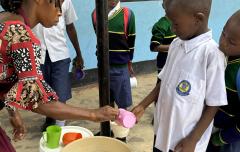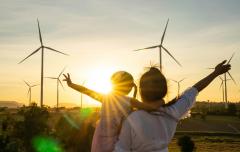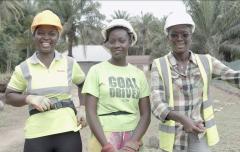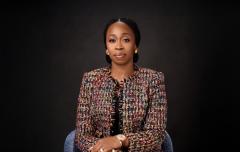Why wait for our grandchildren?
The effects of energy poverty can be seen in health care, and especially in childbirth, where darkness can mean death, and where light can mean life.
By Dr. Kandeh K. Yumkella
The story originally appeared on the Gulf News
In October 2013, I attended the congress of the World Energy Council in Daegu, South Korea. There were over 6,000 energy sector stakeholders, and a subset of them account for over 70 per cent of the world’s electricity supply. Every time you switch on your light, television, mobile phone, refrigerator or any device that relies on electricity in your home or office, give thanks to this group.
However, about 2.8 billion people do not enjoy these facilities most of us take for granted. In fact, the lack of reliable, affordable energy results in 4 million premature deaths every year due to household air pollution (almost double HIV/Aids and malaria combined, and is the number two killer of women). The Trilemma report launched at the WEC congress calls for each country (rich and poor) to pursue the simultaneous achievement of energy security, energy equity, and sustainability. The report also shows that at the current pace of actions by governments and the private sector, ending energy poverty could take another 60-70 years (when my grandchildren are my current age). At the same time, global carbon emissions were at an all-time high in 2012, and the International Energy Agency (IEA) reported in June this year that the world was on a path toward 5.3 degrees centigrade by the end of the century.
Thus, we need more action; we need a more rapid energy transition to grow economies and spread prosperity, while keeping the earth’s thermostat below 2 degrees temperature rise. The promise of an energy transition seemed real when investments in renewable energy deployment reached an all-time high of almost $300 billion (Dh1.1 trillion) in 2011 (in spite of the financial crisis). Investments in renewables were at $245 billion in 2012, with developing countries (especially the Basic countries, (Brazil, South Africa, India and China) accounting for over 50% of the total. But this is not enough.
Doubling renewables
In fact, a May 2013 report by the Global Tracking Framework of Sustainable Energy for All (SEforALL) led by the World Bank, the International Energy Agency and the United Nations shows that in order to achieve the three targets set under the SEforALL initiative, we need investments in the order of $600-800 billion per year over and above the 2010 level. The SEforALL goals are to achieve by 2030, universal access to energy, double the annual rate of improvement of energy efficiency, and double the share of renewables. The targets are consistent with the Trilemma. In 2014, there are still 1.3 billion people who have never had electricity; another 4 million people who lose their lives due to household air pollution from the use of firewood, charcoal and cow dung and other pollutants. This should not happen. We have what it takes to provide global energy access and lift millions out of poverty while making progress on preventing the effects of climate change by using cleaner sources of energy including renewable energy and low-greenhouse gas emitting fossil fuel technologies.
The United Nations General Assembly has declared 2014-2024 the “Decade of Sustainable Energy for All”. Governments around the world including the Small Island Development States, African countries, the European Union have endorsed and pledged their support to Secretary-General Ban Ki-moon’s initiative. They not only will ensure that the three inter-linked goals of the initiative are met but will establish clear national targets and implement national policies and support bottom-up approaches needed to transform the world’s energy system.
To begin the decade, we are launching a new initiative on Energy and Women’s Health, focusing particularly on the contribution that electricity in health clinics can make to saving lives. The effects of energy poverty can be seen most dramatically in health care, and especially in childbirth, where darkness can mean death, and where light can mean life.
More than a quarter of a million health facilities in our world are dark at night and health workers struggle daily to provide care using candles, flashlights. For the first year of the decade, we are working with our partners to highlight the contribution of energy access to better maternal and child health. This also includes the importance of reducing household air pollution through cleaner cooking and lighting solutions.
Energy is a critical enabler for primary health care services and reliable electricity is needed for everything from lighting to equipment sterilisation, powering essential medical equipment for diagnostic and treatment purposes, and storage of vaccines.
We invite you to join with us in this laudable initiative and to include ending energy-poverty as one of your goals in 2014. Visit us at www.seforall.org.
Dr Kandeh K. Yumkella Is Under-Secretary-General at the United Nations and is the Special Representative of the Secretary-General and Chief Executive Officer for Sustainable Energy for All Initiative. Previously, he was a two-term Director-General of the UN Industrial Development Organisation.



